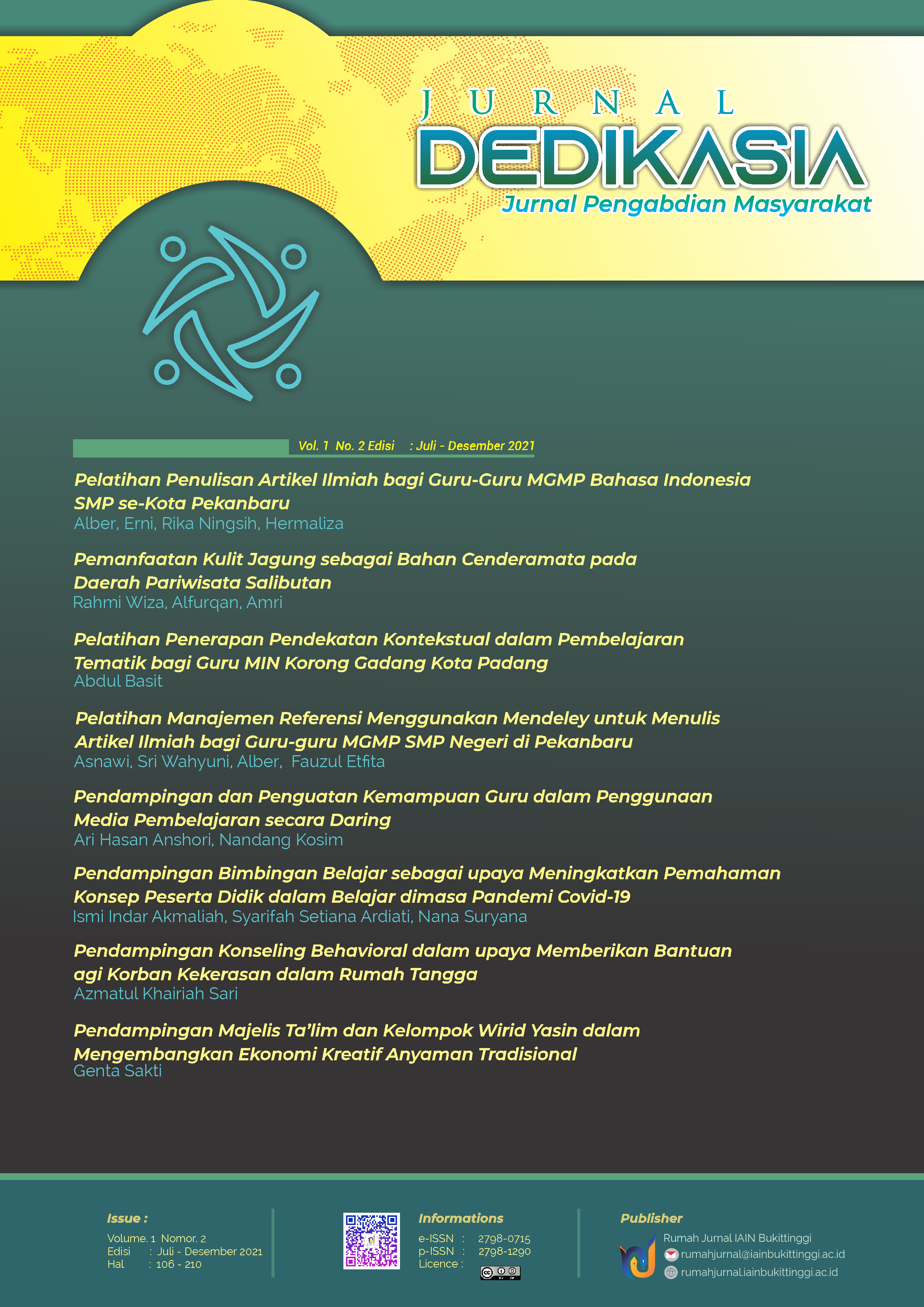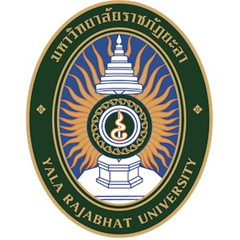Fakultas Tarbiyah dan Ilmu Keguruan Mengajar: Menginspirasi Generasi Muda untuk Cinta Bahasa Arab
DOI:
https://doi.org/10.30983/dedikasia.v4i1.8121Keywords:
Teaching Interest, Learning Arabic, Teaching FTIK ProgramAbstract
The issue of low student interest in learning Arabic is still prevalent in elementary schools today, particularly among students at MDTA Nurul Iman Sihitang. To address this, the Faculty of Tarbiyah and Teacher Training at UIN SYAHADA Padangsidimpuan launched the "FTIK Mengajar" program, which employs various strategies to enhance Arabic language learning. This program was implemented at MDTA Nurul Iman Sihitang in Padangsidimpuan Tenggara. The objective of this community service is to increase the interest in learning Arabic among 41 students at MDTA Nurul Iman during the 2022/2023 academic year. The program utilized a direct mentoring method for teaching Arabic. Data were collected through observation, interviews, and documentation, and then categorized into four stages: planning, action, observation, and analysis of student attendance and activities. As a result, the students' interest in learning Arabic showed a significant improvement, contributing to their overall success in both worldly and spiritual aspects.
Di sekolah dasar saat ini, masih ada masalah minat siswa dalam belajar bahasa Arab, terutama di MDTA Nurul Iman Sihitang. Untuk mengatasi masalah ini, Tarbiyah dan Ilmu Keguruan UIN SYAHADA Padangsidimpuan meluncurkan program "FTIK Mengajar" di MDTA Nurul Iman Sihitang di Padangsidimpuan Tenggara . Program ini menggunakan berbagai pendekatan untuk meningkatkan pembelajaran bahasa Arab. Tujuan pengabdian kepada masyarakat ini adalah untuk mendorong siswa MDTA Nurul Iman untuk belajar bahasa Arab pada tahun akademik 2022/2023. Pengabdian ini menggunakan pendekatan pendampingan langsung untuk mengajar bahasa Arab. Data dikumpulkan melalui wawancara, observasi, dan dokumentasi. Setelah dikumpulkan, data dibagi menjadi empat tahap: perencanaan, tindakan, observasi, dan analisis kehadiran serta aktivitas siswa. Hasilnya, minat siswa dalam belajar bahasa Arab meningkat.
References
Asih, R., Miftahuddin, A., & Elmubrok, Z. (2020). Analisis Kesalahan Fonologi Dalam Keterampilan Membaca Teks Berbahasa Arab Siswa Kelas XI SMA Islam Sultan Agung 1 Semarang. Oktober 2020, 9.
Badawi, S. H. A., Palupi, W., & Sujana, Y. (2018). EFEKTIVITAS PERMAINAN EDUKATIF TERHADAP MINAT BELAJAR ANAK. Kumara Cendekia, 6(3), Article 3. https://doi.org/10.20961/kc.v6i3.35142
Dhayfullah, F., Priyatna, O., & Hamdani, I. (2022). UPAYA MENINGKATKAN MINAT BELAJAR SISWA PADA PELAJARAN BAHASA ARAB DENGAN MENGGUNAKAN METODE PEER TEACHING. JPG: Jurnal Pendidikan Guru, 3, 187. https://doi.org/10.32832/jpg.v3i3.7330
Jamilah, M. (2020). Analisis Kontransif Morfologi Infleksi Dalam Bahasa Arab Dan Bahasa Indonesia. 2020, 3.
Menjadi guru profesional / Moh. Uzer Usman | OPAC Perpustakaan Nasional RI. (t.t.). Diambil 11 Mei 2023, dari https://opac.perpusnas.go.id/DetailOpac.aspx?id=669694
Najah, Z., & Agustina, A. (2020). Analisis Kesalahan Semantik Pada Sekripsi Mahasiswa Jurusan Pendidikan Bahasa Arab UIN Raden Intan Lampung. 2020, 3.
Nasution, S. (2017). Pengantar Linguistik Bahasa Arab. CV. Lisan Arabi.
Sulaikho, S., Yasmar, R., & Shofiyani, A. (2023). Permasalahan Mahasiswa Dalam Mempelajari Morfologi Bahasa Arab. 1 Januari 2023, 6.
The Principles of Psychology. (2023). Dalam Wikipedia. https://en.wikipedia.org/w/index.php?title=The_Principles_of_Psychology&oldid=1149139718
Wulandari, N. (2020). Analisis Kesalahan Fonologis Dalam Keterampilan Berbicara Bahasa Arab. 2020, 3.
Downloads
Published
How to Cite
Issue
Section
Citation Check
License
Copyright (c) 2024 Ira Aniati, Suci Meliani, Hurriyatus Sa’adiyah

This work is licensed under a Creative Commons Attribution-ShareAlike 4.0 International License.
Authors who publish with this journal agree to the following terms:
- Authors retain copyright and grant the journal right of first publication with the work simultaneously licensed under a Creative Commons Attribution License that allows others to share the work with an acknowledgment of the work's authorship and initial publication in this journal.
- Authors are able to enter into separate, additional contractual arrangements for the non-exclusive distribution of the journal's published version of the work (e.g., post it to an institutional repository or publish it in a book), with an acknowledgment of its initial publication in this journal.
- Authors are permitted and encouraged to post their work online (e.g., in institutional repositories or on their website) prior to and during the submission process, as it can lead to productive exchanges, as well as earlier and greater citation of published work (See The Effect of Open Access).




